What you might not know about failing students
Developed by Ken Neff
Greenville High School
School Climate / Credit recovery classroom
Grade Level: High School
Introduction
During the Muse Machine 2019 Summer Institute, educators participated in a workshop presented by the world-renowned Ping Chong + Company. The theme was “Belonging and the Sense of Self” and one of the demonstrations was entitled, Undesirable Elements. Ping Chong + Company has developed this interview-based theatre work to, “examine issues of culture and identity of individuals who are outsiders within the mainstream of the community.” Teachers are often faced with students who find themselves on the fringes of the mainstream, particularly in the high school setting. Teacher Ken Neff from Greenville High School works with students who sometimes feel they are on the outside looking in. In this lesson, Ken uses the concepts he learned from the Ping Chong presenters to bolster the interviewing skills that he wants his students to use during his credit recovery classes. He often finds that his students believe that successful people possess some innate ability that they do not have. As we know, Malcolm Gladwell tells us that it takes 10,000 hours of practice for anyone to become successful at a task. There is a very moving piece in this lesson from Kobe Bryant about the practice that it took for him to reach the pinnacle of his career. The moral of the story is, never underestimate the number of times that it takes for everyone to achieve success!
Click here to view/download this lesson plan as a PDFInspiration
My inspiration was Undesirable Elements, the devised theatre series performed by Ping Chong + Company and introduced to us at the Muse Machine Summer Institute in 2019, which is based on interviews with real people. I believe students who fail classes are viewed by many as the “undesirable elements” in our classrooms.
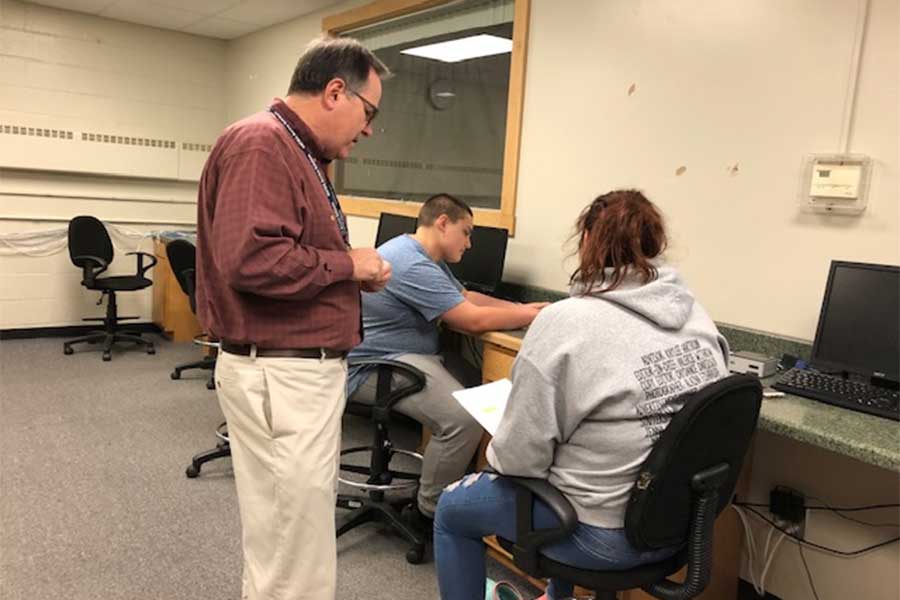
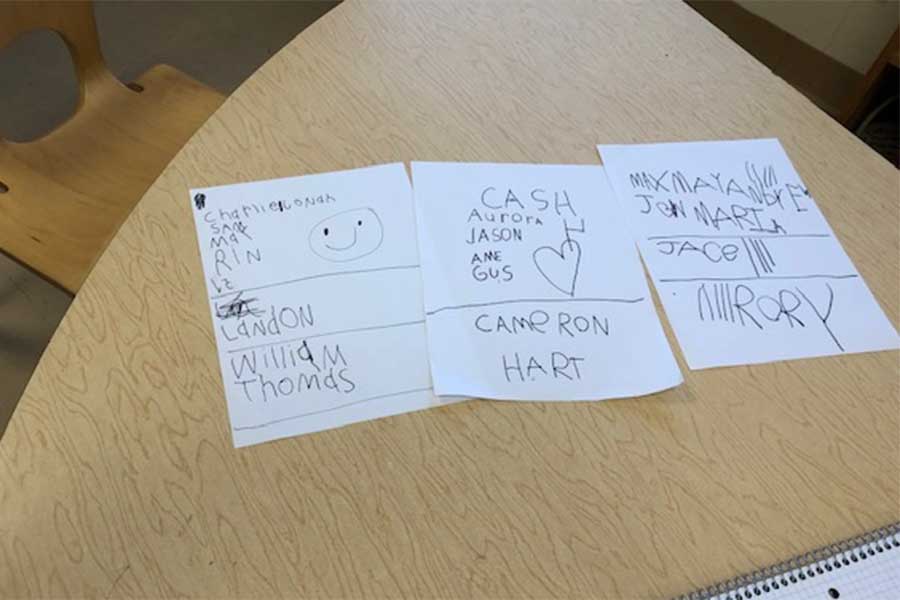
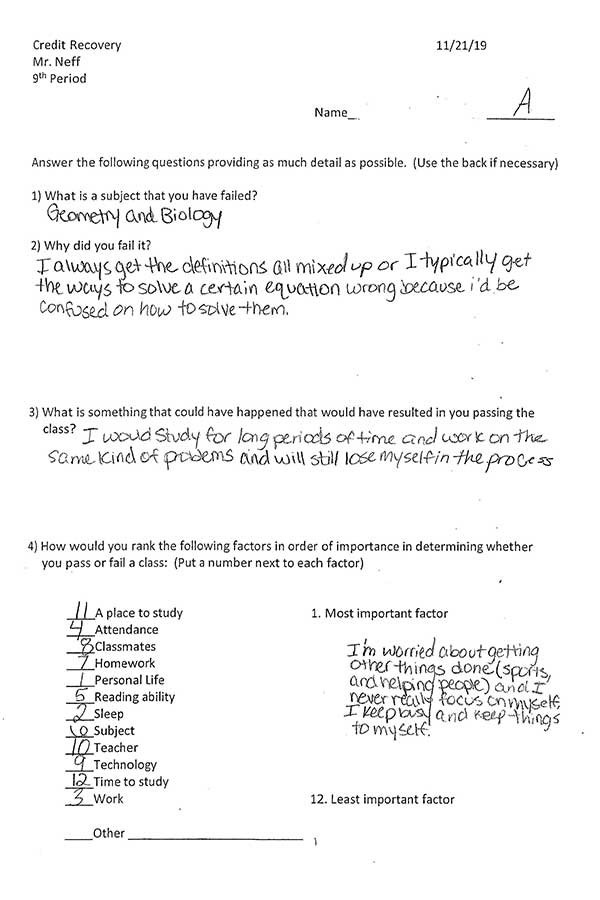
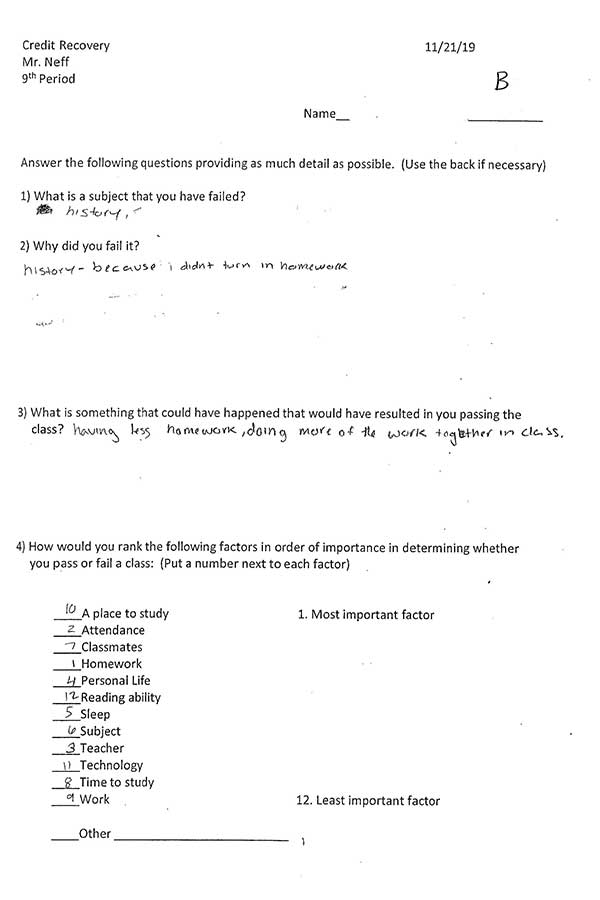
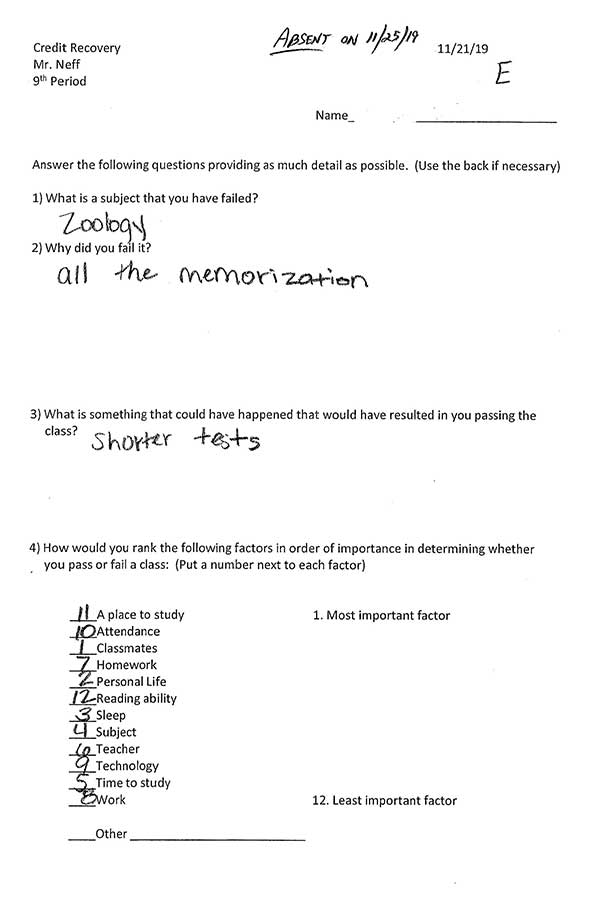
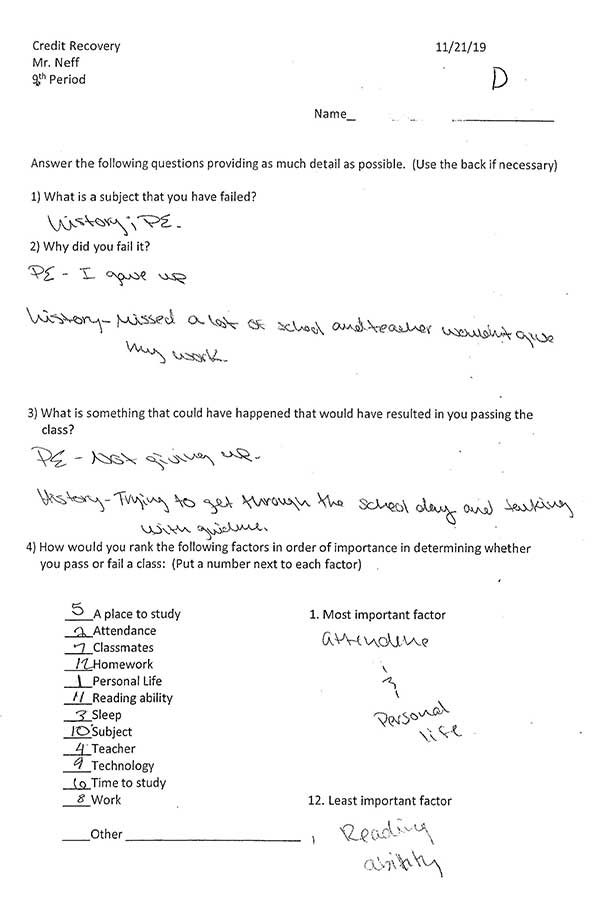
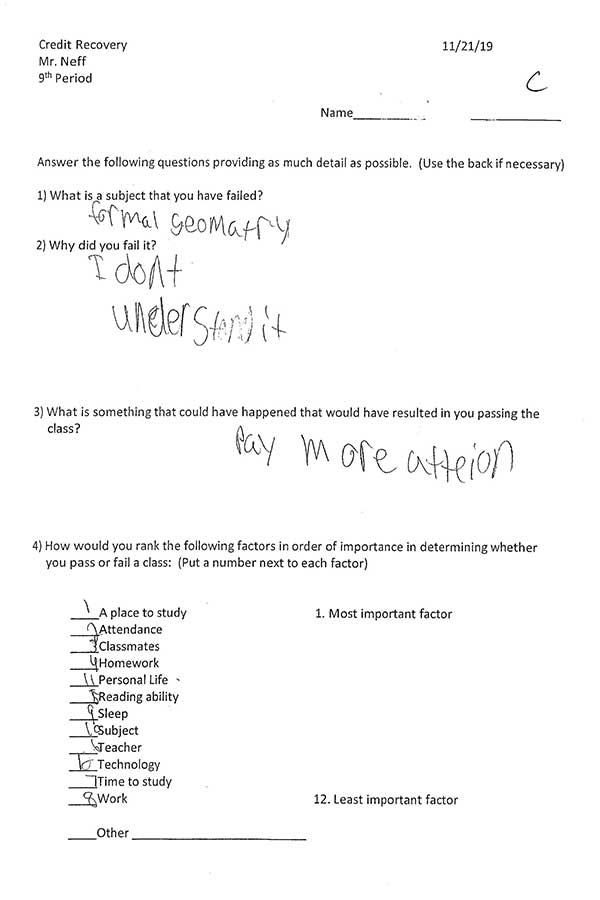
Overview
Summary
Students will individually respond in writing to questions about their academic struggles. Responses will be exchanged between students and they will interview each other (taking notes) to expand on the short answers. Those notes will be turned in as evidence of success in completing the task. Through the process of interviewing each other, students can share insights that will be informative to themselves and to an audience.
Standards
Ohio Social Emotional Standards
Competency A: Self-Awareness
A3 Demonstrate awareness of and willingness to seek help for self or others
A3.2.d Reflect on actions that are based on constructive feedback, address personal challenges and build on personal strengths
Competency B: Self-Management
B3 Persevere through challenges and setbacks in school and life
B3.2.d Reframe a current challenge or setback, by reflecting on successes
Competency D: Relationship Skills
D1 Apply positive verbal and non-verbal communication and social skills to interact effectively with others and in groups.
D1.1.d Actively engage in positive interactions to make connections with peers, adults and community to support and achieve common goals
D1.2.d Apply constructive feedback to strengthen connections and achieve common goals
Competency E: Responsible Decision-Making
E1 Develop, implement and model effective decision and critical thinking skills
E1.2.d Implement a decision-making process to solve complex situations including academic and social challenges
E2 Identify potential outcomes to help make constructive decisions
E2.3.d Integrate prior experience and knowledge of outcomes to inform future decisions
E4 Explore and approach new situations with an open mind and curiosity while recognizing that some outcomes are not certain or comfortable
E4.1.d Actively seek out new opportunities to expand personal knowledge and experiences
E4.2.d Embrace productive struggle as an opportunity for personal growth
Objectives/Outcomes
Eventually, this material provides the basis for a theatrical interview performance in which the students will read from a script based upon their story as told by them and told to their peers. This can be performed for an audience of teachers, peers and other stakeholders to enlighten them on the reasons that students fail and spark discussion on potential preventative efforts and interventions.
Teaching Approach
Small group instruction
Assessment
Interviewer rubric and interviewee rubric
Lesson Preparation
Teacher Needs
- Research the background of the students by drawing upon resources such as school records, conversations with the student, the parents, teachers, counselors and administrators.
- Teachers can help students understand how long successful people work to become successful!
The Grant Baldwin workshop could provide some useful background:
(NOTE: The author refers to a documentary about Kobe Bryant’s life and successful career in this link.)
Helpful Hints
- Review written answers to student questionnaire to suggest follow up questions if an interviewer is struggling to come up with their own questions.
- Prepare students for the actual interview by modeling the interview process from the point of view of the interviewer and the interviewee.
- Allow students to practice interviewing skills with a set of questions that are not as revealing (e.g., favorite sports teams and why?) to allow students an opportunity to gain experience with the process.
- Make sure that the interviewer records the exact words of the interviewee.
Student Needs
Prior Knowledge
Several students have significant personal issues that contribute to their failing classes that they may share with another student. It is important that the teacher monitor the conversations to keep students in a “safe space” and on task.
Student Voice
Students share their experiences of failing academically with each other and may choose the extent to which they share any specific issues.
Vocabulary
Persistence, perseverance, wait time, eye contact, disclosure
Evidence/Assessment of Outcomes
Student responses to the questionnaire, interviewer notes
Enduring Understandings
Students underestimate the number of attempts and time it takes to accomplish something for the first time. While outside factors significantly impact student academic performance, each student has a unique path to success. People often fail many times before they achieve success!
Learning Plan
Prompt
Do successful people make mistakes?
Hooks
If at First You Don’t Succeed, You’re in Good Company poster
Essential Questions
- What can we learn from failing students about how to help them pass classes?
- Why do students fail a subject(s)?
- Why is it difficult for many failing students to reestablish good academic standing?
Resources
- Writing materials
Teacher and Student Performance Tasks
- Students individually complete the questionnaire.
- Teacher sets up an interview schedule based on completed questionnaires.
- On a subsequent day, students are assigned at least one other student to interview.
- Each student is given the other student’s completed questionnaire and directed to interview that student. The expectation is that the interviewer will ask follow-up questions to the responses of the interviewee and that the interviewee will elaborate on their answers. The interviewer is expected to record notes and submit them to the teacher.
Final Review
All students are encouraged to share what they find out about each other and how they felt about the experience.
Lesson Reflection
The lesson eventually produced good dialogue between the pairs of students. There were a few moments of rich conversation about common feelings. It is critical to this activity’s success that students be well prepared on interview procedures and notetaking. If students are not invested in the activity, follow-up questioning is hindered.






